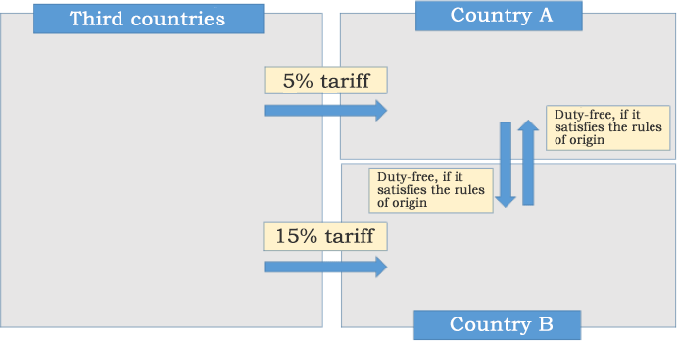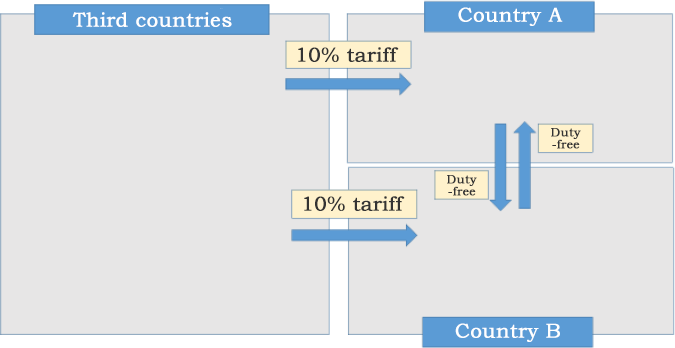- No tariffs on goods from member countries
- No tariffs among members
- Common external tariff toward non-members
- Prevents trans-shipments by non-members
- No tariffs among members
- Common external trade policy
- No barriers to factor movements among members
- All the features of a common market
- Coordination of economic policies
- Unification of economic institutions
- Monetary union: If single currency is adopted

